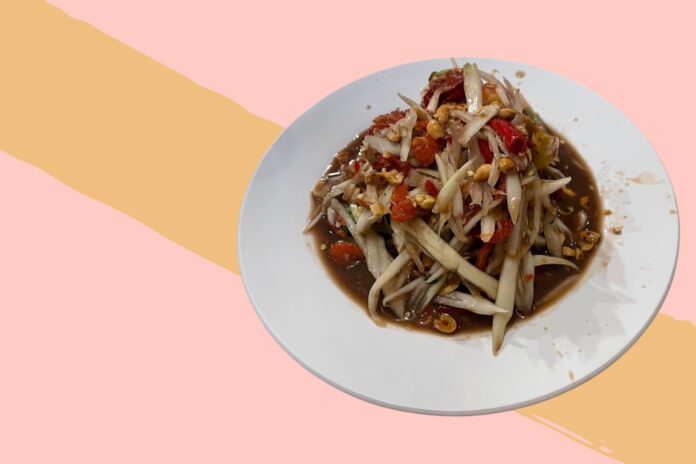Lockdown, furlough, restrictions, and distancing….we’ve all had a lot of time to think about our priorities and goals lately. If you’ve decided that fashion is your calling and you’re keen to go it alone and start your own independent fashion brand, then you’re probably wondering what ingredients are required for success.
You may have the business acumen. You might even have creativity on your side. But starting your own independent fashion brand will take lots of hard work; the industry is notoriously difficult to break into, with many fledgling fashion companies failing before their journey really gets going.
Whether you’re looking to open a pop-up shop, boutique store, sell items over the internet or have international ambitions, here are 5 beginner’s tips for starting your own fashion brand.
HYPER-NICHISM
The fashion industry is unrelenting, and getting noticed can be tough. If you’re going to start an independent fashion brand with any chance of capturing the attention of the consumer, then you’re going to have to choose a hyper-niche section of the market and corner it.
Perhaps you’ve spotted a gap in the market, or you have unique designs that will cater to a specific group of customers? Once you become established within a niche, the skills and experience you’ve built up doing so will enable you to branch out into other types of fashion and create a more successful business. Firstly though, it’s essential to start small to gain the expertise and intricate grasp of the market required to move forward.
Honing your niche offering via pop-up shops in one of the world’s the major fashion cities, or via creative collaborations with existing brands, is a great way to test the water before you invest in your own bricks and mortar premises.
Read: 6 tips for setting up a pop-up shop in New York City.
BUDGETING & A BUSINESS PLAN
Even if you have a small amount of money to start a fashion brand, you will need to budget meticulously, as margins within the fashion industry are incredibly tight, particularly when you’re holding stock but haven’t yet established your brand firmly.
At some point, you’ll also need a business plan in place to impress a potential backer, for example, a bank, about how you will turn your designs into manufactured goods and how you’ll sell them to customers. Without one, no one will take a punt on you, and your fashion industry dreams will remain just that.
Remember, too, that any plans you make for budgeting or creating a business plan will need to be flexible because the fashion industry can be incredibly difficult to predict and tastes change on a whim. As such, your business plan should be on paper before any designs are.
One of the essential elements of making a business plan is to do a deep market analysis. In doing so, you’ll be able to identify what has recently worked and what hasn’t; in an industry as fickle as fashion, this can prove invaluable.
This plan will give an overview of what your business is about, how it will start and also grow. As it grows, your business plan will provide something of a blueprint on the scalability of your proposition.
Read: 5 IDEAL ways to keep up with new fashion trends.
ORGANISATION
Regardless of the size of your business, you will still need to organise it rigidly, whether it’s just you and a sewing machine on the kitchen table, or several staff in a workshop.
It’s a good idea to have business goals set out, both in the short-term and long-term, so you know what success looks like when it happens to you, and can make appointments and designate roles accordingly.
In fields as creative as fashion, there is often a danger that structural considerations and specific managerial roles are often overlooked in favour of a workplace culture which encourages innovation and ideas. Unfortunately, you’re in this thing to make money, first and foremost, so avoid this temptation and instead insist on a strict organisational structure.
In even the smallest of independent fashion companies, there should be at least four separate departments; for designers, buyers, sales and marketing. That point remains even if it’s only you running the company, as each of these sections will need some kind of attention and managing.
SUSTAINABLE DESIGN
Phew; the exciting part! You’ll need to visualise exciting, creative designs, get them onto paper and have them realised for your fashion brand to succeed.
For independent fashion brands who are just starting out, it’s best to focus on a tight, honed set of products rather than trying to satisfy everyone. Some of the most successful small, independent fashion labels started with just one product, and this is a great way to keep close quality control of your offering.
It’s at this point that you may decide to invest in quality fabrics – fashion isn’t only about aesthetics, after all. It’s also a tactile thing, and a fabric which feels cheap to the touch isn’t going to last long on anyone.
The guys at Hainsworth, who create materials for leading fashion brands, extol the virtues of ‘slow fashion’, and we couldn’t agree more with the sentiment. They say that ‘’Slow Fashion is about the entire supply chain, from fibre to consumer, making the conscious decision to design, manufacture and consume fashion in a manner that connects environmental, ethical and social responsibility and results in beautiful well made garments that last.’’
Make this part of your fashion brand’s offering; a pledge to sustainability and durability, equally. Using high quality fabrics speaks of this promise to the consumer, both physically and emotionally.
Incidentally, should you be using a company to manufacture your garments, you’ll need a ‘tech pack’, which will give the technical details and the product specification for your clothes.
A tech pack, as the experts at Startup Fashion tell us, should include information about the inspiration for your designs, as well as specific instructions on callouts, print/fabric placement, colourway, materials, detailed proto-spec, and even how you’d like the product to be folded for dispatch.
BRAND
Alongside having quality items on offer in your fashion store, you also need to pay attention to the importance of branding in the fashion industry. As much as you are selling a product, you also need to be selling an idea – a vision – in order to stand out from the crowd.
Ask what your brand helps people to do. Does it make people feel more confident, express themselves, be sporty or look professional? If it’s all four, there’s a danger you’re spreading yourself too thinly, so get focused.
It’s equally important to consider what ethos and stance your brand supports. Are you all about public body confidence or comfort in a domestic setting? Would lounge or formalwear more astutely describe your items?
As we said earlier, one of the best ways to establish a brand identity in the fashion world is through the quality of the materials you use, and the subsequent impression of durability and longevity in your product. To help with this, you could partner with a fashion business consulting firm to work with their professional production and branding teams, who will be able to further enhance your brand’s identity and impact.
MIND THAT FASHION FOOTPRINT
The fashion industry is one of the most damaging in the world where its carbon footprint is concerned, and it’s essential that you, as a responsible business owner, do your best to acknowledge this and adopt practices which help you tread as lightly as possible.
Fortunately, we’ve got you covered for that, too. Check out this advice ways to forgo fast fashion for some pointers on the subject. Oh, and don’t forget to send us an invite to your launch party!





